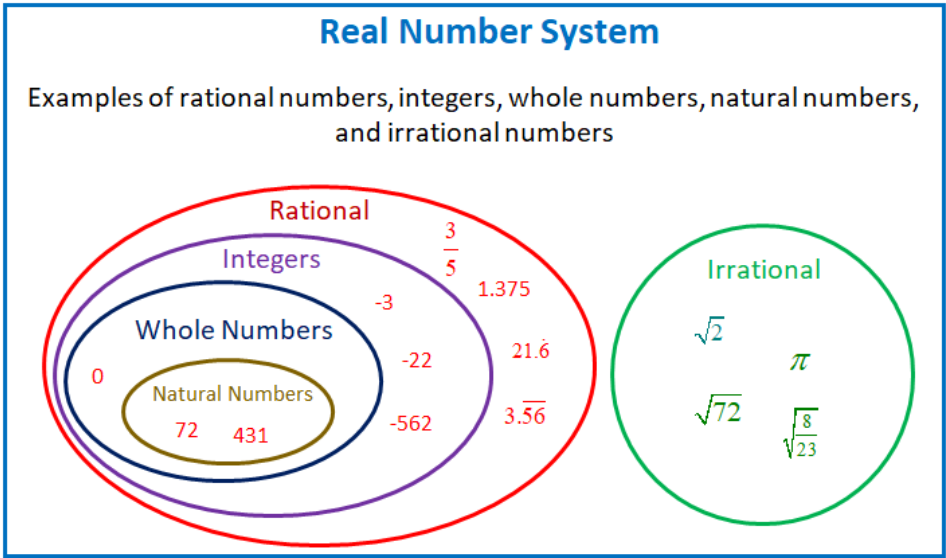Numbers
In mathematics, numbers are fundamental mathematical entities used for counting, measuring, and performing various mathematical operations.They form the basis of almost all mathematical concepts and are essential in various branches of mathematics, as well as in everyday life.
Types of numbers:
-
Natural Numbers: Natural numbers are the counting numbers, starting from 1 and going infinitely upwards (1, 2, 3, 4, ...). They are used for counting objects in the real world.
-
Whole Numbers: Whole numbers include all the natural numbers along with zero (0, 1, 2, 3, ...). They are used for counting objects when we include the concept of "none" or "zero" items.
-
Integers: Integers are a set of positive and negative whole numbers along with zero (... -3, -2, -1, 0, 1, 2, 3, ...). They are used to represent situations involving gain (positive integers) or loss (negative integers).
-
Rational Numbers: Rational numbers are numbers that can be expressed as a fraction of two integers, where the denominator is not zero. It includes all integers and fractions (e.g., 1/2, -3/4, 5/8).
-
Irrational Numbers: Irrational numbers cannot be expressed as fractions and have non-terminating and non-repeating decimal expansions. Examples include the square root of 2 (√2), π (pi), and e (the base of the natural logarithm).
-
Real Numbers: Real numbers encompass all rational and irrational numbers. They can be represented on the number line and include numbers like whole numbers, fractions, decimals, and surds.
-
Imaginary Numbers: Imaginary numbers are in the form "bi," where "b" is a real number, and "i" is the imaginary unit (√(-1)). Examples include 3i, -5i, etc.
-
Complex Numbers: Complex numbers are the combination of real and imaginary numbers and are written in the form "a + bi," where "a" and "b" are real numbers. The real part is "a," and the imaginary part is "bi."
-
Prime Numbers: Prime numbers are natural numbers greater than 1 that have no positive divisors other than 1 and themselves. Examples include 2, 3, 5, 7, 11, and so on.
These are just a few of the many types of numbers in mathematics.
Each type of number has its unique properties and applications in various mathematical contexts, making them an essential aspect of mathematical study and problem-solving.
